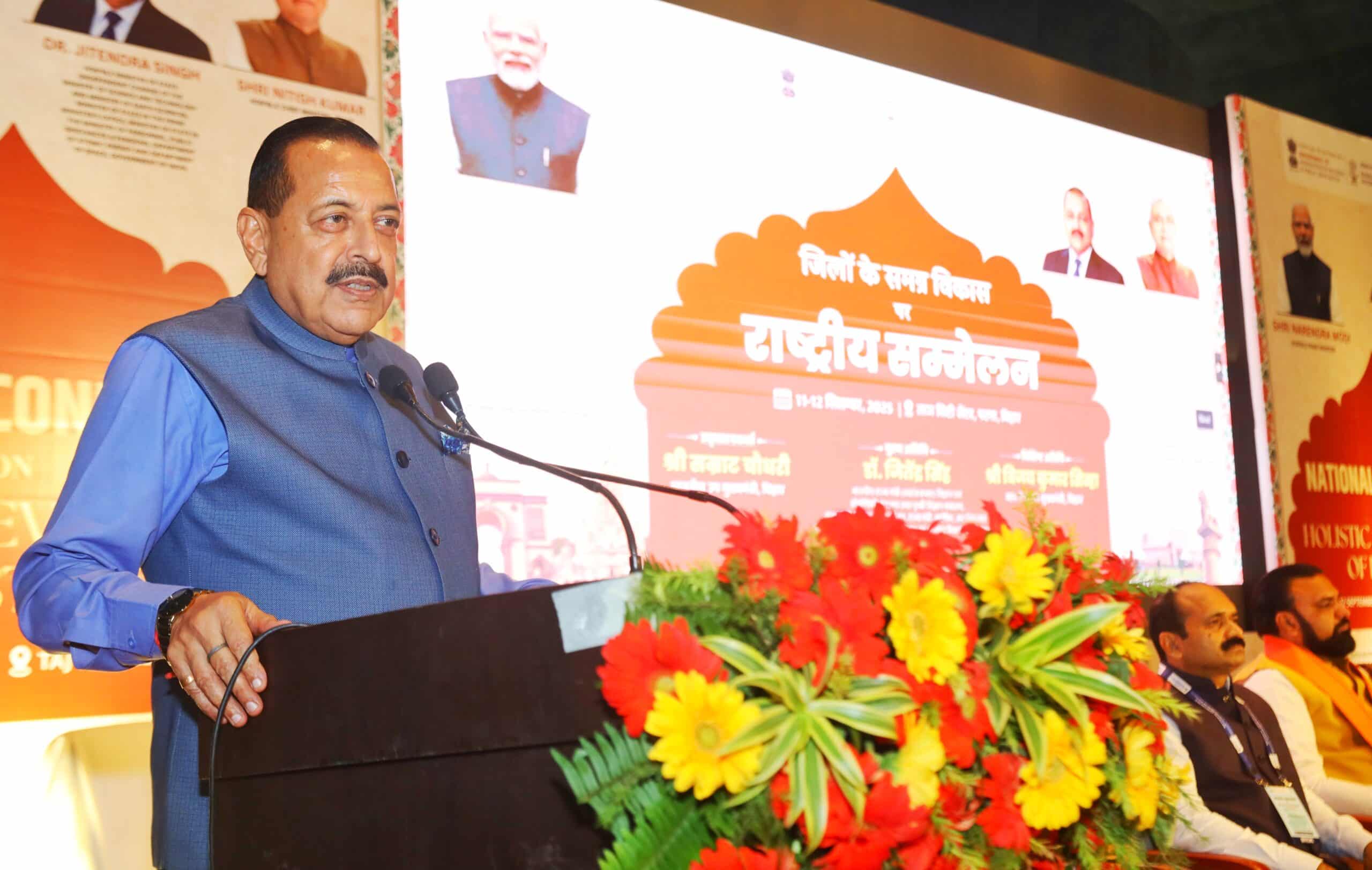‘Aspirational District’ Model Introduced by Dr. Jitendra Singh

Dr. Jitendra Singh, the Union Minister of State for Personnel, Public Grievances, and Pensions, inaugurated a two-day National Conference on “Holistic Development of Districts” today. The event, organized by the Department of Administrative Reforms and Public Grievances (DARPG) in collaboration with the Government of Bihar, aims to foster innovative governance practices and promote citizen-centric development across India. During his address, Dr. Singh praised the Aspirational District model introduced by the Modi government, emphasizing its focus on competitiveness and real-time monitoring rather than backwardness.
Aspirational District Model: A Shift in Perspective
Dr. Jitendra Singh highlighted the significance of the Aspirational District model, which replaces the outdated term “Backward Districts” with a more positive and aspirational identity. He stated that this model is designed to encourage competitiveness and convergence among districts. The ranking of districts is based on real-time monitoring and scientific benchmarks, ensuring a participatory approach that involves citizens in the governance process. This shift in perspective is intended to transform the mindset of both administrators and citizens, making governance a dynamic and competitive mechanism.
The Minister also commended Bihar’s progress and resilience, particularly in the post-Jharkhand era, when the state faced significant challenges. He credited the state government, led by Chief Minister Nitish Kumar, for its effective collaboration with the central government. Dr. Singh pointed out that Patna’s historical legacy of good governance serves as both an inspiration and a challenge to meet the rising expectations of citizens.
Five Pillars of Holistic Development
In his address, Dr. Singh outlined five guiding pillars for holistic district development, emphasizing the need for comprehensive and inclusive progress. He stressed that development initiatives should focus on saturating government schemes to reach every eligible citizen. This requires a collaborative effort among the Centre, State, and Panchayati Raj Institutions to create a seamless framework for service delivery. Active participation from all stakeholders, including citizens, is crucial to ensure that governance remains people-centric.
Dr. Singh also underscored the importance of innovation in governance to tackle local challenges effectively. He encouraged the replication of successful models across districts to foster a culture of sustainable and inclusive growth throughout the country. By sharing examples of innovative, citizen-driven solutions, such as the timely delivery of Ujjwala gas cylinders in flood-prone areas, he illustrated how local governance can adapt to meet the needs of the community.
International Recognition and Reforms
The Minister noted that India’s governance reforms have garnered international attention, with countries like Madagascar expressing interest in adopting the Centralized Public Grievance Redress and Monitoring System (CPGRAMS) and the Digital Life Certificate model. He highlighted key reforms, including the elimination of 1,600 obsolete laws to reduce bureaucratic red tape and the shift from rule-based to role-based functioning through Mission Karmayogi.
Additionally, the introduction of the Swamitva Scheme and various digital governance models has enhanced transparency, efficiency, and accessibility in service delivery. Special campaigns focused on cleanliness and e-waste recycling have also generated significant socio-economic benefits, demonstrating the tangible impact of these governance reforms.
Commitment to Citizen-Centric Governance
Dr. Jitendra Singh concluded his address by emphasizing the importance of a whole-of-government and whole-of-nation approach to achieve the vision of Viksit Bharat (Developed India). He reiterated that governance innovations must translate into real socio-economic development for every citizen. The Minister congratulated Bihar for adopting 238 online services, implementing the Right to Public Services Act, and establishing Lok Seva Kendras and Panchayat Sarkar Bhawans, which exemplify a commitment to citizen-first governance.
He also mentioned that DARPG has initiated state-level collaborations with financial support ranging from ₹15 to ₹15.5 crore, with Bihar as a key partner. This collaborative effort aims to enhance governance and improve service delivery for the citizens of Bihar and beyond.
Observer Voice is the one stop site for National, International news, Sports, Editor’s Choice, Art/culture contents, Quotes and much more. We also cover historical contents. Historical contents includes World History, Indian History, and what happened today. The website also covers Entertainment across the India and World.
Follow Us on Twitter, Instagram, Facebook, & LinkedIn

